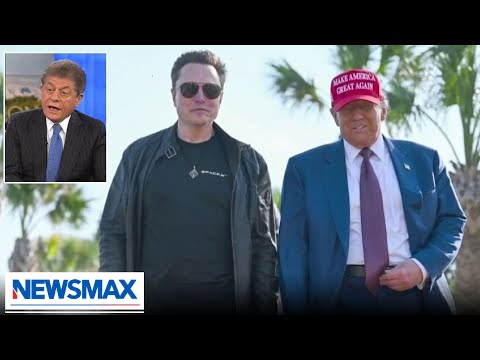In an unusual turn of events, a legal showdown has emerged involving Elon Musk and a group of 19 state attorneys general. The matter revolves around the Department of Justice’s (DOJ) decision—or lack thereof—to respond to a case brought against Musk’s team. Judge Engelmayer, who happened to be on call during a weekend merchant duty, found himself overseeing a situation that raised eyebrows across the board. The attorneys general had sent a message to the DOJ regarding their concerns about Musk’s team accessing sensitive government information and potentially having the power to fire federal employees. While the court navigates this complicated case, many are left wondering how this clash of industry titan and government authority will unfold.
At the heart of the dispute lies the question of who holds the power to oversee government employment and spending. While some may argue that Musk’s efforts could help clean up what President Trump calls “the swamp,” others are concerned about giving a private entity too much control over public servants. Judge Engelmayer has ruled that Musk’s team must halt their actions until a judge assigned to the case can fully address the concerns at hand. This comes amid allegations that Musk has expressed his disdain for the judge on social media, dubbing him “a corrupt judge protecting corruption.” Clearly, tensions are running high!
As the courts prepare to dive into the nitty-gritty of this litigation, some intriguing questions remain unanswered. Can the DOJ truly authorize Musk’s team to evaluate and even cut federal employees? Or is this move an overreach of power for an agency that may not possess the congressional backing necessary for such decisions? The very foundation of public service hinges on whether these actions are deemed acceptable and lawful. After all, federal jobs are funded through appropriations by Congress, making their job security potentially a matter for lawmakers to decide, not a tech billionaire.
Both sides present compelling arguments. Supporters of Musk, including some conservatives, may tout the potential for improved efficiency and accountability in government spending. Conversely, defenders of the status quo emphasize the importance of protecting established federal processes, which are designed to ensure that taxpayer dollars are spent wisely. This clash reflects a broader societal debate about the role of private companies in public governance, and what threshold exists before they become too involved in the inner workings of government.
As the court proceedings continue, all eyes remain trained on Musk and the attorneys general engaged in this legal battle. The implications of this case stretch far beyond a single executive action; they touch on the very essence of how our government operates. Could this be a pivotal moment for the future of federal oversight and accountability? Or is it merely a sideshow in the ever-evolving drama that is modern American governance? Only time will tell, but in the meantime, the nation is all ears as the courts weigh in on this gripping saga.



